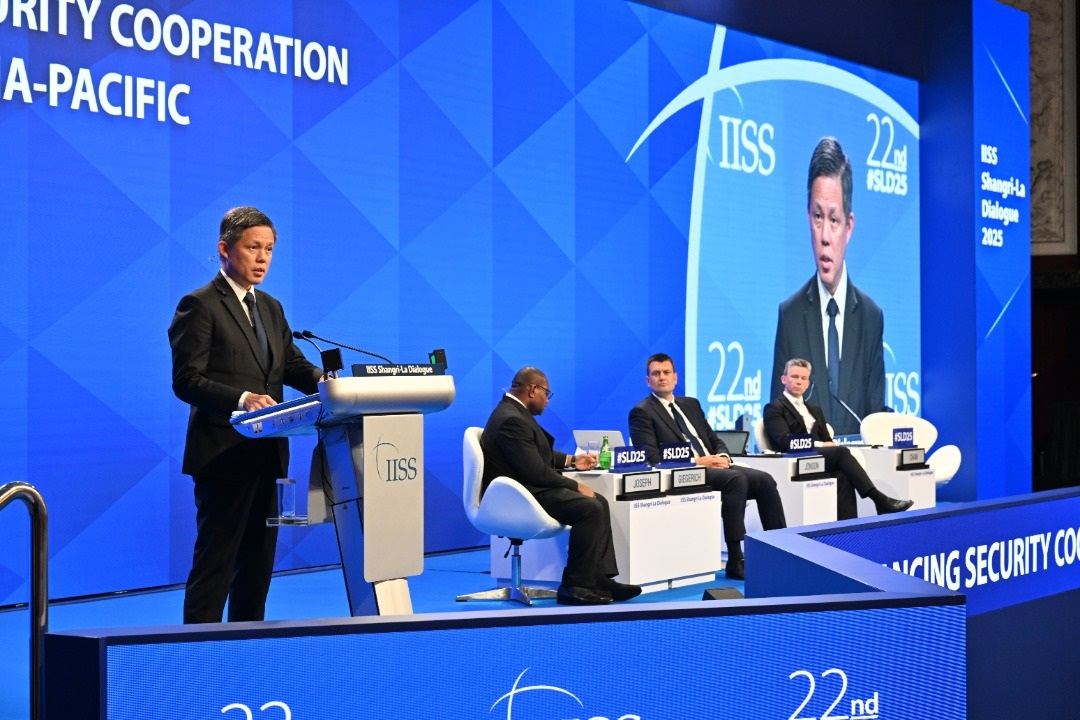DIPLOMACY
Countries should not have to pick sides between US, China: Dr Ng
02 Jun 2019
To maintain stability in the region, countries should not be forced to pick sides in the escalating tensions between the United States (US) and China over trade issues and in the South China Sea.
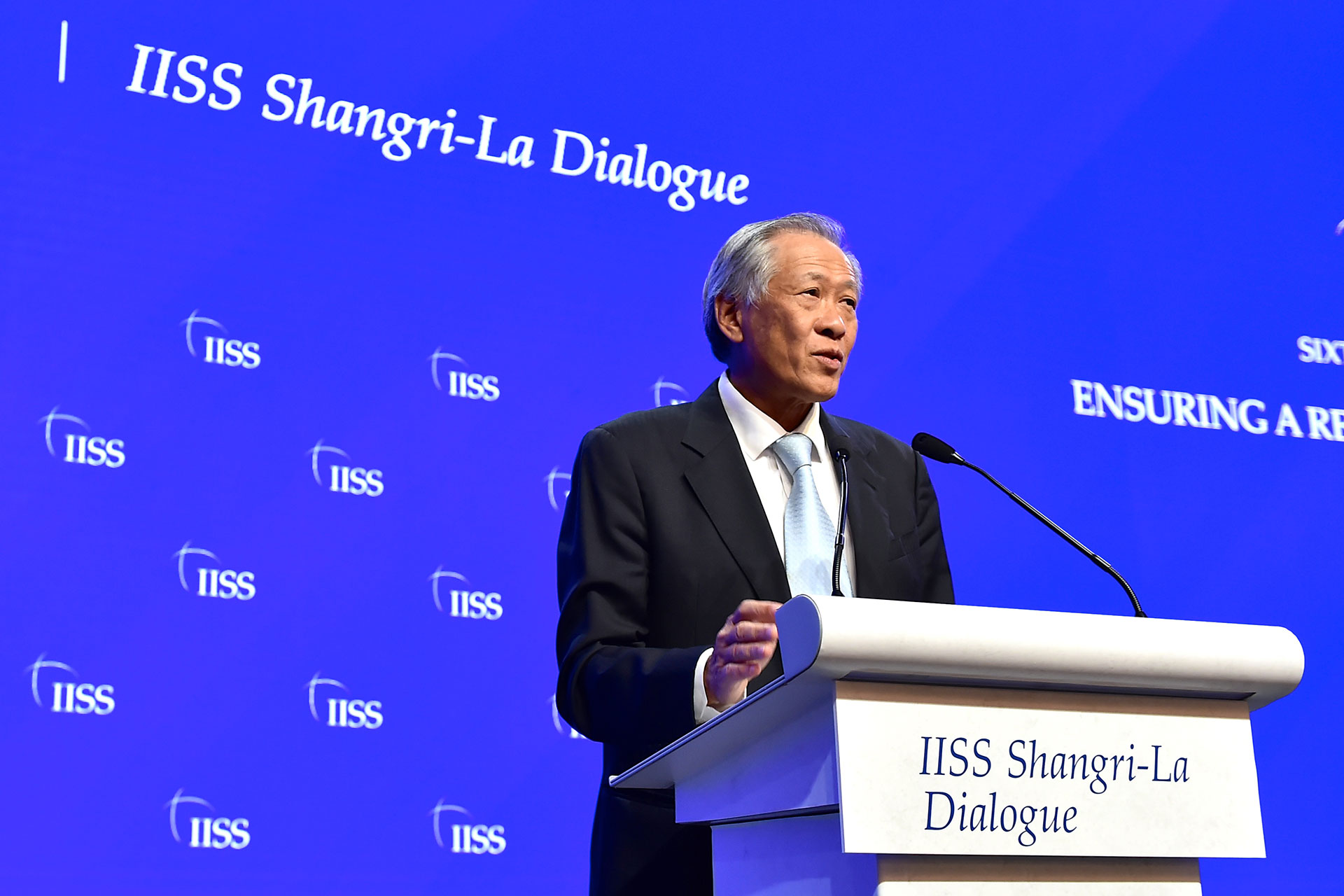
To maintain stability in the region, countries should not be forced to pick sides in the escalating tensions between the United States (US) and China over trade issues and in the South China Sea.
This was one of the key points made by Minister for Defence Dr Ng Eng Hen during his plenary speech on the final day of the 18th Shangri-La Dialogue on 2 Jun. Dr Ng noted that both countries had stated security as the basis for their current positions – the US in trade and China in the South China Sea.
"But whatever the underlying motivations, for either countries, if America First or China's rise is perceived to be lopsided against the national interests of other countries or the collective good, the acceptance of US' or China's dominance will be diminished," said Dr Ng.
"Countries will hedge first in trade ties, and later inevitably in security alliances," he added, noting that the phenomenon has already started to take place.
When the US pulled out of the Trans-Pacific Partnership or TPP – the remaining nations chose to proceed to establish the 11-member Comprehensive and Progressive Agreement for TPP (CP-TPP). Even China did not say no to joining the CP-TPP, noted Dr Ng.
The CP-TPP is one of the largest free trade agreements in the world. Even without the US' participation, the 11-member trade pact represents more than 13 per cent of the global Gross Domestic Product (GDP).
Dr Ng also painted a scenario where the European Union increases its engagement with China or seeks other partners apart from the US. That will happen if the EU perceives that the US' terms for trade are too punishing to bear, said Dr Ng."
Worse still, is the situation where individual countries have to choose between the US or China, be it in technology, trade, security, or comprehensive partnerships. That will be the ultimate losers' game and a race to diminishing benefits for all concerned," he said.
Positive signs
In a media interview after the close of the Dialogue, Dr Ng said the fact that both the US Acting Secretary of Defense Patrick Shanahan and Chinese State Councilor and Minister of National Defense General (GEN) Wei Fenghe were present at the Dialogue was a positive sign.
"There were direct speeches by both Acting Secretary Shanahan and Minister Wei. I would rather have that than just general statements that didn't address the issues," said Dr Ng, adding that there was a sense of optimism that if they could at least articulate the issues, then perhaps the two sides could resolve the issues or reduce their differences.
Dr Ng also described the intention of both the US and China to increase interactions between their defence officials as another positive sign.
In a plenary speech earlier this morning, GEN Wei said while China is ready to resist the US on certain trade issues, it would keep the doors open should the US want to hold talks. Similarly, Mr Shanahan said in his speech at the Dialogue on 1 Jun that the US will cooperate with China where there is an alignment of interests and compete where necessary.
"The more interactions you have, even when there are differences, you reduce the risk of missteps and miscalculations," said Dr Ng, adding that Singapore and the ASEAN Defence Ministers' Meeting (ADMM) will continue to push for more military-to-military interactions.
ALSO READ IN DIPLOMACY
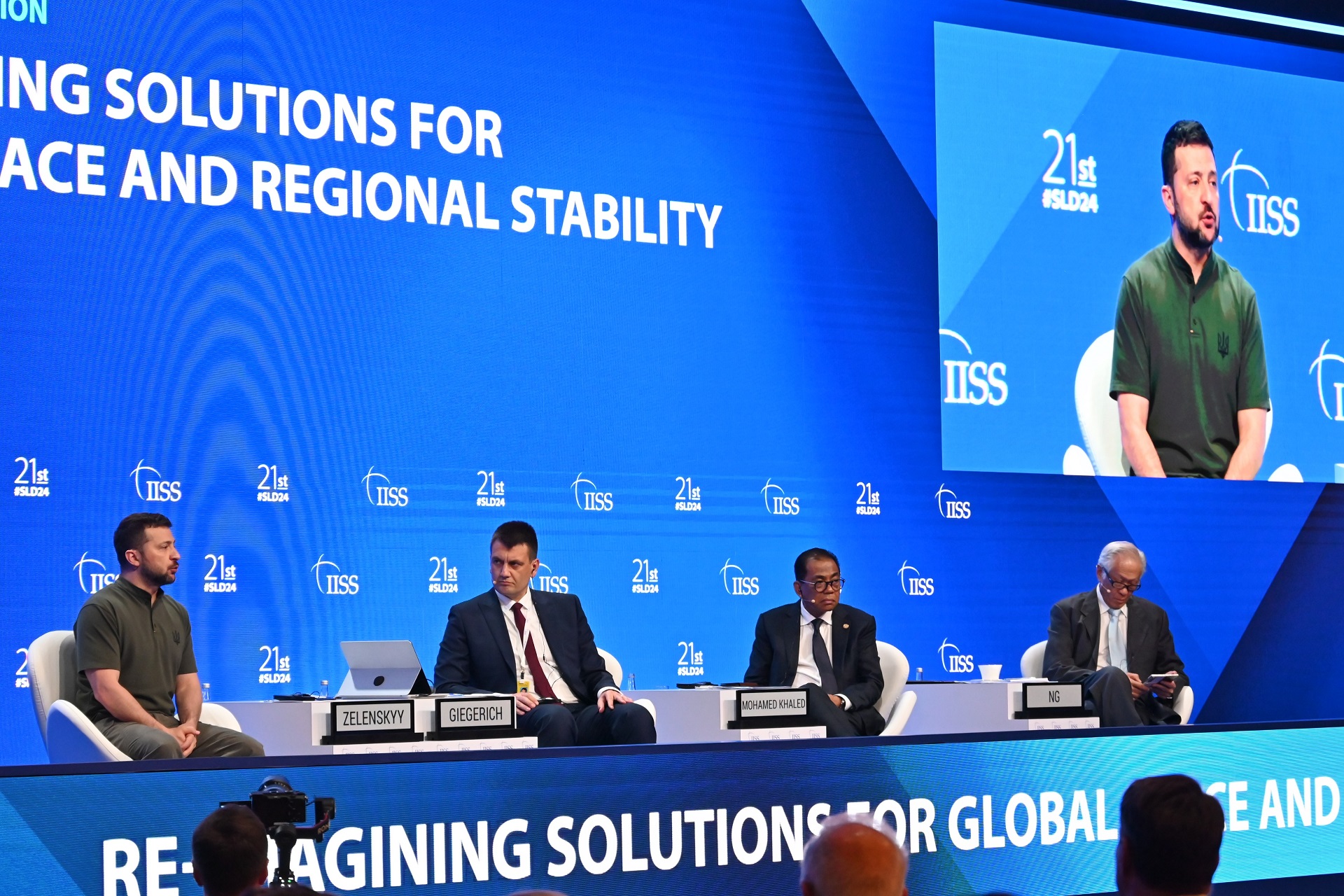
A call for peace at Shangri La Dialogue
02 Jun 2024
A repeated call for peace, especially in Asia. This was Minister for Defence Dr Ng Eng Hen's central message at the 21st Shangri La Dialogue (SLD), held from 31 May to 2 Jun.
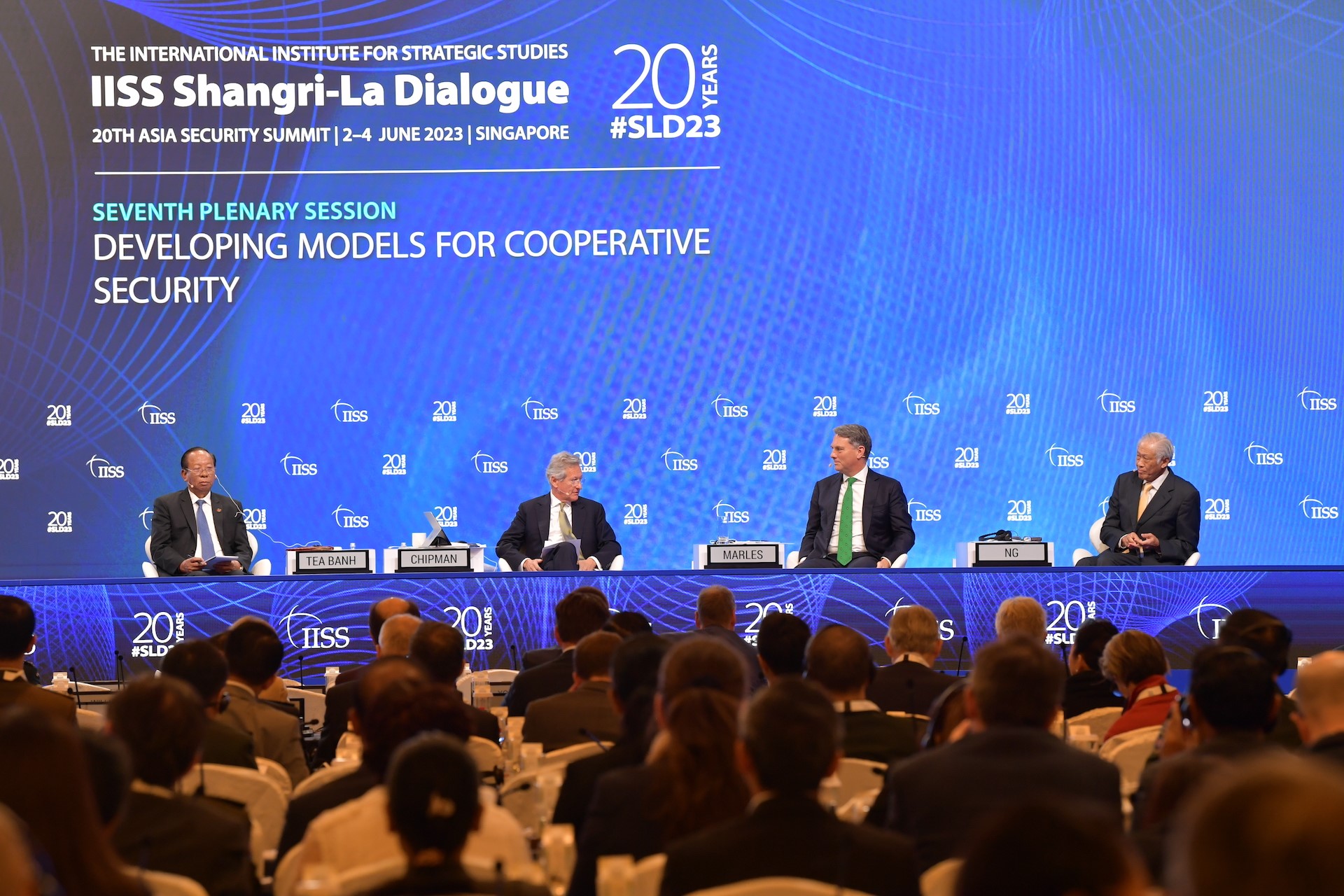
Shangri-La Dialogue sees frank discussion of security issues
04 Jun 2023
The 20th Shangri-La Dialogue, held from 2 to 4 Jun, saw ministers from around the world meet in Singapore to discuss key defence and security issues.
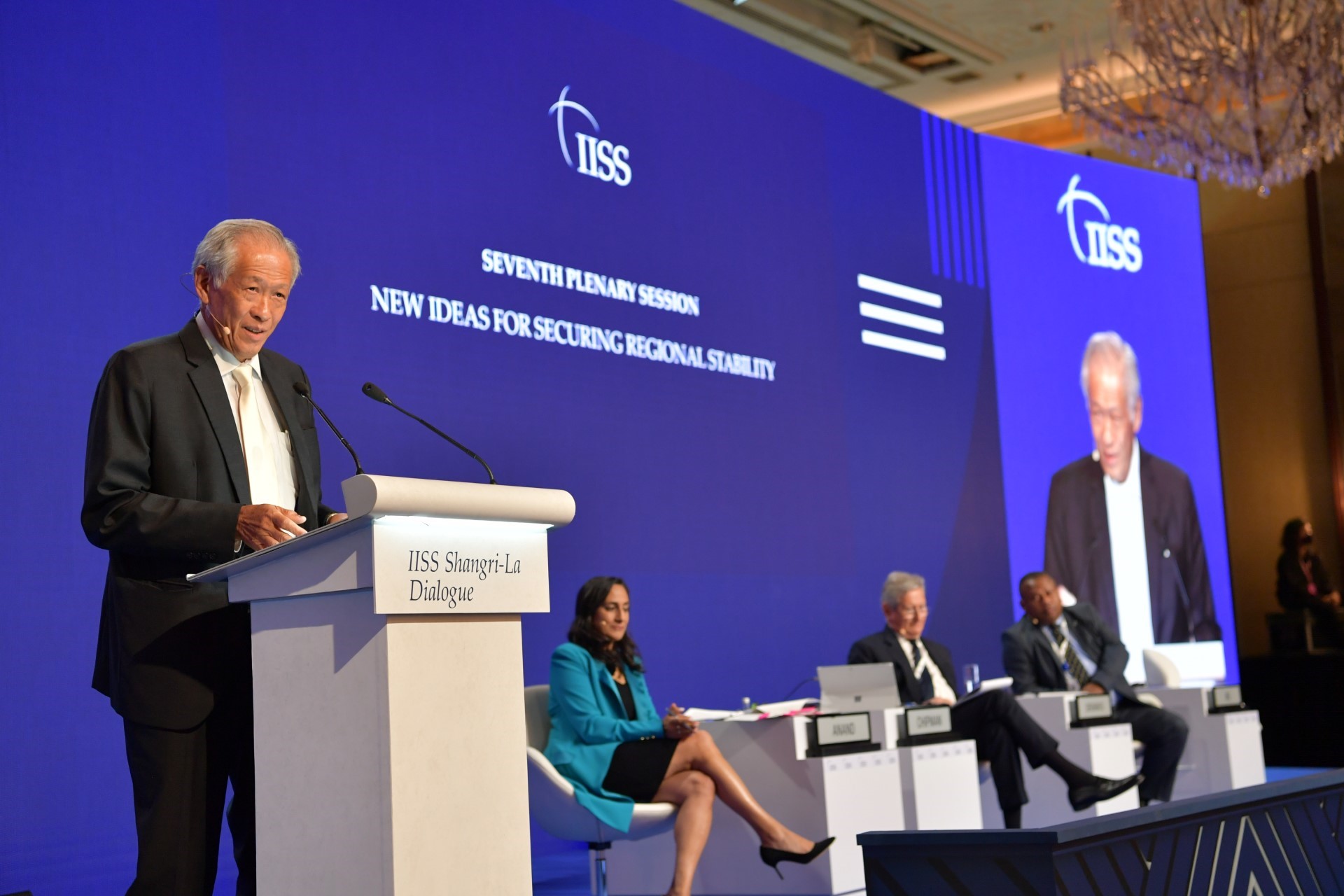
SLD remains valuable platform for crucial discussions: Dr Ng
12 Jun 2022
Minister for Defence Dr Ng Eng Hen spoke on the US-China relationship, the importance of a rules-based order and the role of ASEAN as a regional security platform at the 19th Shangri-La Dialogue (SLD).


